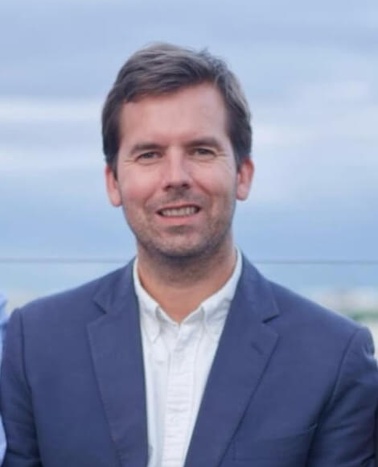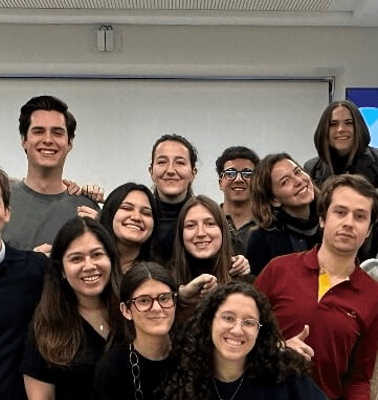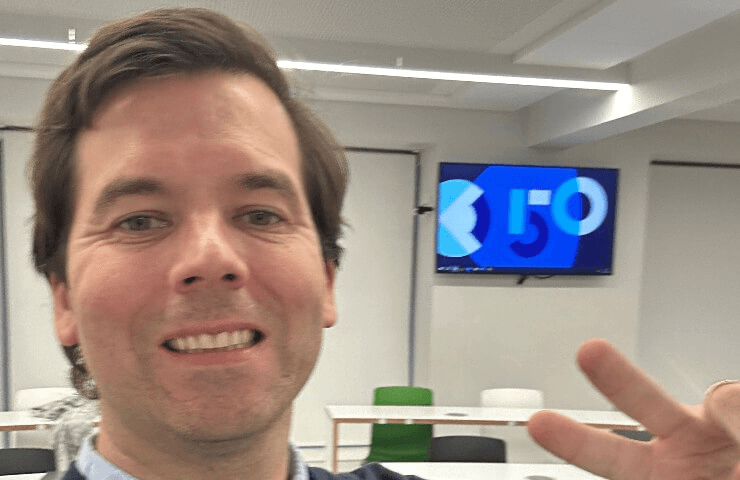
Andrés Martínez-Zurita Julià
I am a curious person with many interests. For example, ever since I was little, I've loved art and have been fascinated by history. Outside of work, my family is one of the pillars of my life, so I take the opportunity to spend time and travel with them whenever I can. I always try to be a good role model for my children, both at work and in everyday life. I also consider myself to be an altruistic person who does everything in my power to help others. That is what ultimately led me to study law and what drives me to donate blood four times a year.

"IE Law School provides a perfect context and framework, as well as tools to deal with today's reality."
Altruism turned into a vocation for legal education
Andrés Martínez-Zurita, an IE Law School alum, has developed a successful career in the field of corporate law. He has worked in important firms such as KPMG and Cuatrecasas, as well as MZ—where he currently practices as a lawyer specializing in contract law, blockchain, and mergers and acquisitions. What’s more, he combines his professional practice with his work as a professor of the Doble Máster en Abogacía y Procura + Asesoría en Derecho Digital y de la Tecnología (LL.M.) at IE Law School.
Andrés is well aware of all the opportunities he has been able to access thanks to his time at our institution. He says that IE Law School not only "opens many doors," but also offers quality training that stands out for the stature of the professors and student body, as well as for the methodology and dynamism of the classes.
His desire to give back and help other students who want to follow a similar path to his is one of his main motivations for teaching. In the classroom, he tries to convey to students that in order to achieve a successful career in the field of law, it’s necessary to "adapt and understand the current context, regulations and current social realities and how they interrelate."
In his case, this ability to adapt has led him to specialize in blockchain, a technology he believes all lawyers should "at least understand." He considers himself very fortunate for the valuable knowledge he has gained advising companies in this field. He’s worked with organizations and clients from all over the globe, from Singapore, the US and Australia to the Netherlands, the UK and Ireland.
Andrés does not keep this experience to himself, but shares it with his students in his blockchain and digital assets class. His classes address many of the topics that large firms tackle every day: the creation of investment companies in digital assets, the listing of cryptocurrencies, the categorization of these assets, authorizations before the National Securities Market Commission (CNMV), and more.
"As a lawyer, it's key to be able to at least understand what blockchain is."
In Andrés' opinion, digital assets present several challenges from a legal perspective. On the one hand, they are based on principles that are not legal, but inherent to the blockchain. On the other hand, although regulations such as MiCA and DLT at the European level have made great progress in the regulation of digital assets, there is still a long way to go.
For Andrés, it’s incredibly important for legal professionals to master the existing legislation at a national and European level, as well as the reforms that are being proposed in this context. They also need to understand the differences between security and utility, what decentralized finance is all about, and how leverage and collateralization work in the digital asset industry. Andrés' goal is for his students to delve into the framework of blockchain and digital assets. He strives to help them understand the concepts on which the framework is based, going beyond labels such as BTC, #YOLO, #HODL, etc.
To help his students internalize all these concepts, Andrés relies on a dynamic and multidisciplinary methodology that has earned him the Award for Excellence in Teaching, an award given directly by the students. His course studies real-life examples, from SEC court rulings to cases drawn from Andrés' real-life experience in large law firms and companies.
For those who are planning to study at IE Law School and specialize in blockchain and legal assets, Andrés recommends that they start by asking themselves if this technology is aligned with their interest in law and can help them in their career. He also advises them to take advantage of everything IE Law School has to offer. While it provides "a perfect context and framework, as well as tools to deal with today's reality," the responsibility for making the most of these opportunities rests with each individual.
TAKE THE NEXT STEP IN YOUR LEGAL EDUCATION
TAKE THE NEXT STEP IN YOUR LEGAL EDUCATION

